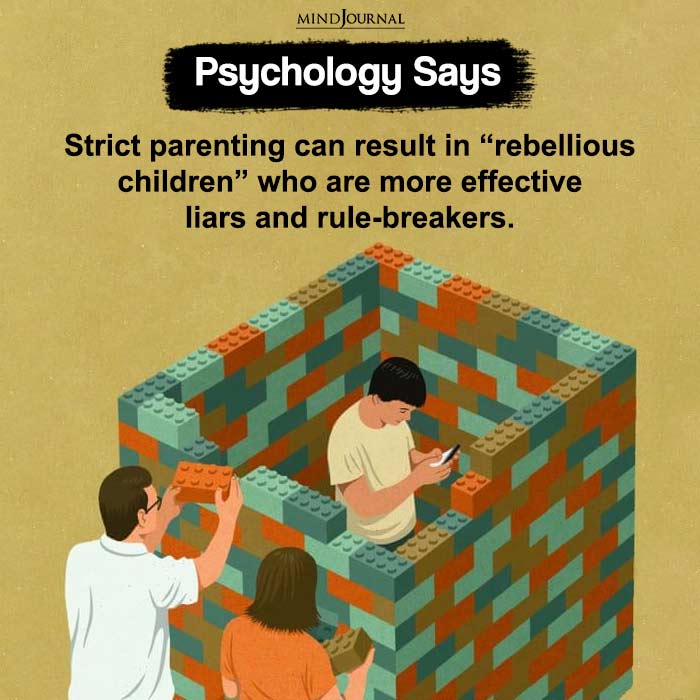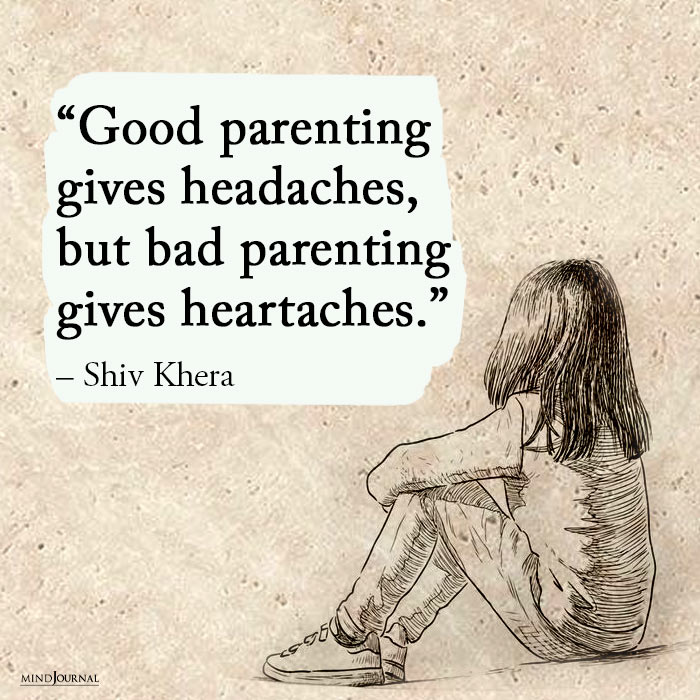Understanding the teenage brain is crucial for parenting today’s teens.
During adolescence, the brain undergoes rapid development, resulting in many changes in a teenager’s behavior and emotions.
As a parent, understanding these changes can help you to communicate better and connect with your teen.

10 Must-Follow tips for raising happy and successful teens
Here are some teenage parenting tips for you to follow –
1. Don’t take things personally
When your teen lashes out or gets moody, it’s not about you!
Remember that your teen is going through a lot of changes and emotions, and sometimes it can be hard to control those feelings.
Here are some practical ways to put expert advice into practice
- Try to put yourself in your teen’s shoes and imagine what they might be feeling. For instance, if your teen is upset because they didn’t get in the sports team, try to understand how disappointing that must be for them.
- Another helpful activity is to practice active listening. When your teen is upset or angry, try to listen without interrupting or getting defensive.
- Focus on providing support and understanding to help your teen navigate their emotions. For instance, if your teen is struggling with a difficult class, offer to help them study or find a tutor.
- If they are feeling overwhelmed with extracurricular activities, help them prioritize and manage their time.
By not taking things personally, you can create a safe and supportive environment for your teen.
Remember, parenting today’s teens is not always easy, but with empathy, active listening, and support, you can help your teen thrive.
Related – 4 Types Of Parenting Styles In Psychology: What Kind Of A Parent …
2. Setting effective boundaries
One of the most important tools in positive parenting strategies for the teenage years is setting effective boundaries.
But what does that mean, exactly?
Setting boundaries is about establishing clear expectations for your teen’s behavior, while also providing consequences when those expectations aren’t met.
It’s not about being strict or controlling, but rather about teaching your children to make responsible choices and respect themselves and others.

Ways to set boundaries to establish clear rules and consequences for your teens
- If you want your teen to be home by 10 pm on weekends, make sure they understand that this is a non-negotiable rule.
- Be consistent in enforcing the rule, and make sure your teen understands the consequences of breaking it.
- If your teen is struggling to keep up with schoolwork, ask them what boundaries they think would be helpful. Maybe they need a specific time and place to study or limits on screen time during the week.
Make it clear that the boundaries are in place to help your teen make good choices and stay safe instead of just defining the rules for them.
This can help your teen feel less defensive and more willing to accept the rules.
Related – The 4 Common Parenting Styles And Their Effects On Kids
3. Encourage them to become independent
As parents, it’s natural to want to protect your children and keep them safe.
But as they grow older, one of the best parenting tips for teenage parents is to encourage them to become independent and confident in their own abilities.
This is an essential step to help them grow into successful and confident adults.
Some tips to help you support your teen’s independence
- Give your teen opportunities to make decisions and take responsibility for themselves.
- Let your teen take charge of planning a family vacation or a weekend outing.
- Encourage your teen to take on more responsibility, such as a part-time job or a volunteer position.
4. Instead of being controlling, try to understand them
When it comes to parenting today’s teens, it can be easy to fall into the trap of thinking that you always need to be in control and your teen should be answerable.
But the truth is, nobody’s perfect, and everyone makes mistakes – even parents.

Remember that apologizing isn’t a sign of weakness – in fact, it’s a sign of strength and maturity.
It shows your teen that you’re willing to take responsibility for your actions and that you value their feelings and well-being.
Here are some practical ways to put expert advice into practice
- Start by acknowledging what you did wrong and how it impacted your teen. For example, you might say something like, “I’m sorry I snapped at you earlier. That wasn’t fair to you, and I shouldn’t have done it.”
- Taking steps to prevent the same mistake from happening again, or making amends for any harm caused.
- If you were in the wrong for forgetting to pick up your teen from a school event, you might apologize and make a plan to make it up to them by taking them out for a special dinner or planning a fun activity together.
Related – 10 Signs Of Bad Parenting In A Child’s Behavior
5. Positive reinforcement
Positive reinforcement is one of the most powerful tools in a parent’s arsenal, yet it’s often overlooked in favor of criticism or punishment.
The truth is, positive reinforcement is a highly effective way to encourage and reinforce positive behavior in your children.
When you praise your children for their efforts and accomplishments, you are sending a message that their hard work and dedication are valued and appreciated.
This, in turn, motivates them to continue striving for excellence and to take pride in their achievements.
Practical ways of parenting teens with love and logic by encouraging them include
- Acknowledge their accomplishments and good behavior and let them know that you’re proud of them.
- If your teen has been keeping their room clean, say, “I really appreciate how tidy your room is. It looks great!”
- If your teen has been doing well in school, say, “I’m so proud of you for putting in the effort to get those good grades.”
6. Stay involved in your teen’s life
It’s no secret that teenagers can be challenging to parent. They’re often moody, secretive, and resistant to authority.
But despite these challenges, it’s crucial to stay involved in your teen’s life and to continue building a strong, supportive relationship with them.
Staying involved means more than just monitoring your child’s activities or checking in on their grades.
Here are some practical ways to put expert advice into practice for parenting today’s teens
- Attend their school events or extracurricular activities, such as sports games, music performances, or plays.
- Get to know their friends and their parents. Host get-togethers or a dinner party at your house to show them that you are involved.
7. Have open communication with them
Open communication is one of the most important elements of a healthy parent-child relationship, especially during the teenage years.
Open communication is a two-way street, so it’s important to also share your own thoughts and feelings with your teen.
This can help to build trust and understanding between you, and can also help your teen to see you as a role model and a source of guidance.
Here are some practical ways to put expert advice into practice for parenting today’s teens
- Encourage your teen to talk to you about their feelings, worries, and concerns. Listen to them without judgment.
- Schedule regular one-on-one time with your teen to talk about their day, their interests, and any issues they might be facing.
- Be approachable and non-judgmental. Avoid interrupting or dismissing their concerns.
8. Lead by an example
As a parent, your actions speak louder than your words.
One of the best ways to positively influence your child is to lead by example. This means modeling the behaviors and values that you want your child to emulate, such as honesty, kindness, responsibility, and self-discipline.
Here are some practical ways to put expert advice into practice for parenting today’s teens
- Show your teen how to manage stress in healthy ways, such as through exercise, meditation, or talking to a friend.
- Avoid using drugs or alcohol in front of your teen, and demonstrate responsible behavior when it comes to drinking and driving.
9. Spend time with them on a regular basis
As parents, it can be tough to navigate the complexities of raising a teenager.
But here’s the thing: teenagers need connection more than ever, even when they’re pushing you away.
So, what can you do?
Prioritize your teens. Make an effort to connect with them on a regular basis.
These simple ways are helpful for parenting difficult teenager
- Put away distractions like phones and computers, and give them your full attention when they’re speaking to you.
- A hug or a pat on the back can go a long way in showing your teen that you care.
Related – 9 Best Tips For Digital Parenting Challenges In The World
10. Be supportive of their unique passions
One of the positive parenting strategies as your teen grows and develops their own unique interests and passions is that, it’s important to be supportive of these pursuits.
Whether they are interested in sports, music, art, or any other activity, showing support for their passions can help them develop a sense of confidence and self-worth.
Encouraging your teen to pursue their own passions and interests, even if they’re different from yours, can help them feel empowered and independent.
Ways that can help you in raising teenagers
- Build a stronger relationship with your teen and create positive memories together.
- Start by asking your teen what activities they enjoy or what they’re interested in. Maybe they like playing video games, listening to music, or trying new foods.
- Think about activities that you enjoy and see if there’s any overlap with your teen’s interests. For example, if you both enjoy cooking, plan a night when you can make a meal together. Or if you both like hiking, plan a weekend trip to explore a nearby trail.
- If you’re having trouble finding common ground, consider trying something new together. Maybe take a class or try a new sport that neither of you has tried before.
These can be a fun way to bond and create new shared experiences.
While the challenges of parenting today’s teen may seem daunting, it’s important to remember that sometimes the simplest pieces of advice can have the biggest impact.
By implementing these straightforward advice for parents of teenagers. Parents can make a real difference in their relationships with their children.









Leave a Reply
You must be logged in to post a comment.